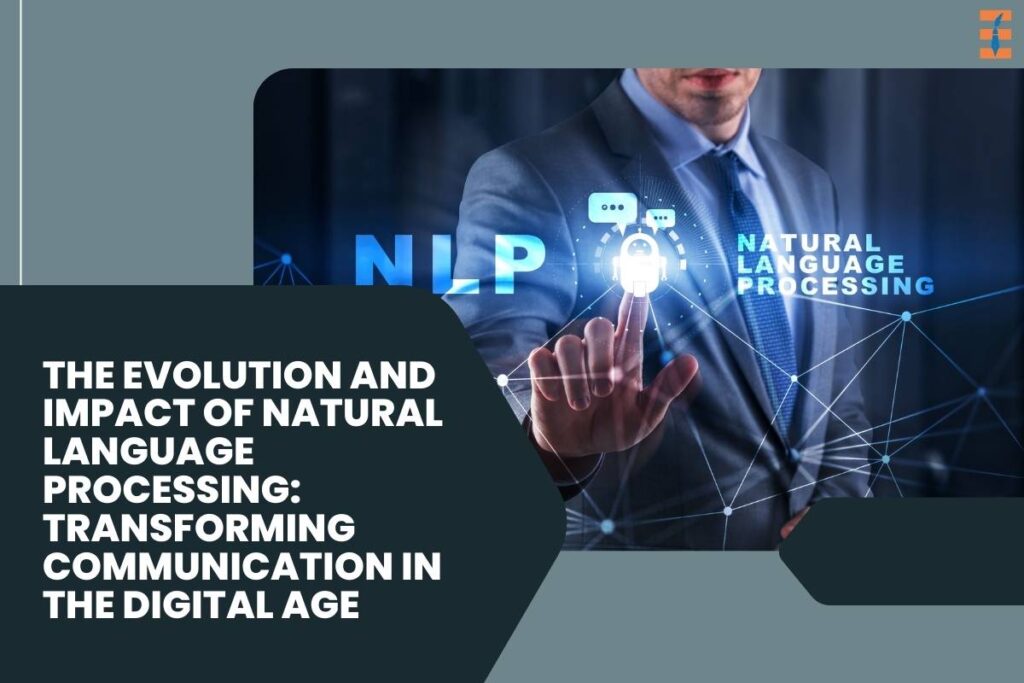In today’s world of technology, few innovations have changed how we communicate and process information as much as Natural Language Processing (NLP). This branch of artificial intelligence enables machines to understand, interpret, and generate human language, making interactions between humans and computers smoother. From its early days to now, NLP has not only transformed communication but has also been used in various industries to improve how we interact digitally and make decisions.
In this article, we will learn about Natural Language Processing, its application, challenges, and its future growth.
Understanding Natural Language Processing
Natural Language Processing encompasses a comprehensive array of techniques and methodologies aimed at bridging the gap between human language and computational systems. At its core, NLP involves the development and deployment of algorithms and models that enable machines to process and derive meaningful insights from textual and spoken language data. This capability empowers computers to perform an impressive array of tasks, ranging from language translation and sentiment analysis to text summarization and the creation of interactive conversational agents such as chatbots and virtual assistants.
The journey of Natural Language Processing (NLP) traces back to the early 1950s when initial efforts were primarily focused on rudimentary tasks such as language translation and information retrieval. Over subsequent decades, significant advancements in computational power, coupled with the exponential growth in the availability of vast textual datasets, propelled NLP into new frontiers of capability and utility. Today, NLP algorithms leveraging cutting-edge machine learning and deep learning techniques have achieved unprecedented levels of accuracy and efficiency in understanding and generating human language. These advancements underscore the remarkable evolution of natural language processing, from its foundational beginnings to its current state of sophisticated application across various domains.
Applications Across Industries

The widespread adoption of NLP has sparked a wave of innovation across a multitude of sectors, each benefiting from its transformative capabilities. In the realm of healthcare, NLP is employed to analyze vast repositories of medical records and clinical notes, thereby facilitating enhanced diagnostic accuracy and treatment recommendations. Financial institutions harness NLP for sophisticated sentiment analysis of market data and customer interactions, enabling more informed decision-making and precise risk management strategies. In the realm of e-commerce, NLP underpins the development of advanced recommendation systems and personalized shopping experiences, leveraging insights derived from customer reviews and preferences to optimize user engagement and satisfaction.
Moreover, NLP plays an indispensable role in revolutionizing customer service operations through the deployment of intelligent chatbots capable of understanding and responding to inquiries in real time. These virtual assistants not only streamline customer interactions but also drive operational efficiencies and cost savings for businesses across various industries. In the field of education, NLP facilitates personalized language learning experiences and the creation of adaptive educational content, empowering educators to deliver tailored instruction and feedback to students on a global scale.
Challenges and Ethical Considerations

Despite its transformative potential, NLP confronts a spectrum of challenges and ethical considerations that warrant careful examination. One of the foremost challenges lies in the inherent complexity and ambiguity of human language itself. Languages evolve dynamically over time, presenting significant obstacles in terms of accurately interpreting nuances, idiomatic expressions, and cultural contexts even for advanced NLP models. Furthermore, biases inherent in training data used to develop NLP algorithms can inadvertently perpetuate societal prejudices or stereotypes, underscoring the critical importance of ethical considerations in the design and deployment of these technologies.
Privacy concerns surrounding Natural Language Processing (NLP) focus on the ethical handling of personal data used for training and operational purposes. As NLP technologies advance, the collection and utilization of vast datasets containing sensitive information such as personal communications and medical records raise significant issues of consent, security, and fairness. Ensuring transparency in how data is gathered, processed, and protected is essential to maintaining user trust.
Additionally, mitigating biases inherent in NLP algorithms is crucial to preventing discriminatory outcomes. Collaborative efforts among policymakers, industry leaders, and researchers are needed to establish robust regulations and ethical guidelines that prioritize user privacy, data security, and fairness in NLP development and deployment. Upholding these principles is key to harnessing the full potential of NLP while safeguarding individuals’ rights and maintaining societal trust in technological advancements.
The Future of Natural Language Processing

Looking ahead, the trajectory of Natural Language Processing appears exceptionally promising, driven by ongoing research and development initiatives aimed at overcoming existing challenges and expanding the frontiers of language understanding and generation. Emerging trends such as multilingual NLP models capable of comprehending and generating text in multiple languages promise to foster greater global connectivity and facilitate enhanced cross-cultural communication and collaboration.
Furthermore, advancements in conversational AI are poised to redefine the nature of human-computer interactions, enabling more intuitive and contextually aware communication between individuals and automated systems. Virtual assistants such as Siri, Alexa, and Google Assistant continue to evolve rapidly, offering increasingly sophisticated capabilities to anticipate user needs, provide personalized assistance, and facilitate seamless integration into everyday tasks and workflows.
Conclusion
In conclusion, Natural Language Processing stands as a transformative force within the realm of artificial intelligence, reshaping how we communicate, interact, and access information in the digital age. From its foundational roots in linguistic theory to its current applications across diverse industries, NLP exemplifies the boundless potential of technological innovation to drive societal progress and enhance human experiences on a global scale.
Also Read: The 20-20-20 Rule: Protecting Your Eyes in the Digital Age










